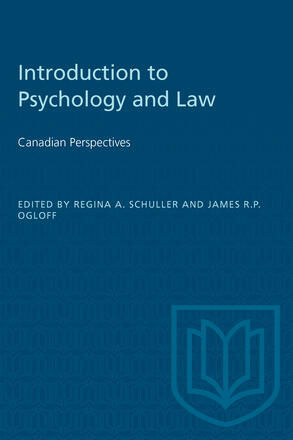
Description
Despite the notable Canadian presence in the field of psychology and law, there is currently no comprehensive Canadian textbook on the subject. While a few U.S. textbooks cover the field, they give little or no attention to Canadian law and research. In recognition of this problem, editors Regina Schuller and James Ogloff have put together an authoritative introduction to law and psychology for a Canadian audience. Within the fifteen chapters that comprise the book, leading Canadian scholars cover a wide range of topics spanning the applications of psychology - clinical, social, cognitive, developmental, experimental - in both criminal and civil areas of law. These include memory and eyewitness testimony, the jury, sentencing, competency to stand trial, criminal responsibility, and many others. The legal system in Canada serves as the backdrop for each of the chapters, which begin with an interesting case or anecdote that introduces the reader to some of the major issues facing psychologists and lawyers in this country.
The book offers a compelling introduction to the field and a unique perspective to Canadian readers, especially students in psychology, criminology, and other disciplines in social science and law.